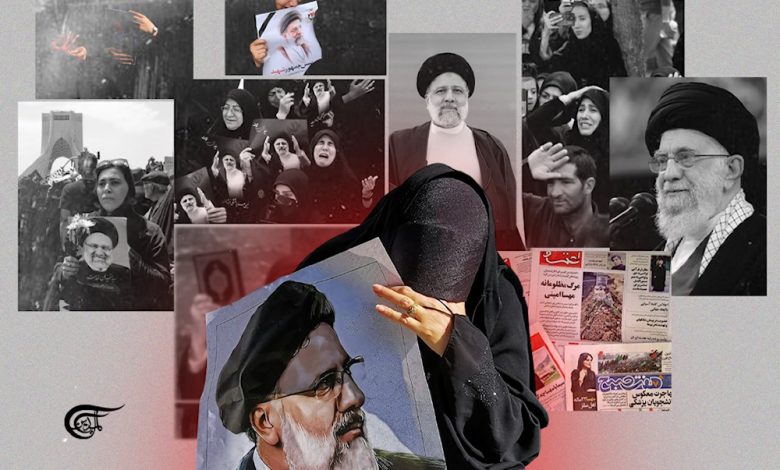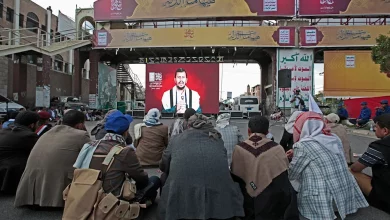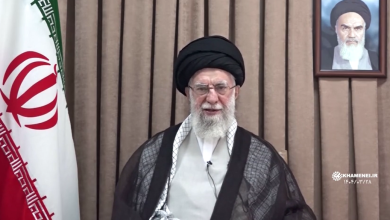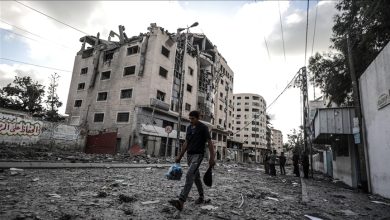How the West weaponized women’s rights to demonize Ebrahim Raisi

As Iranians flooded the streets to mourn the loss of their late President Ebrahim Raisi, mainstream Western governments, and media sources attempted to massively downplay the great sadness that gripped Iran following the unfortunate event.
Raisi, alongside Foreign Minister Hossein Amir-Abdollahian and others, tragically died in a helicopter crash on May 19 while en route to Tabriz. Following the accident, millions gathered for funeral processions all over Iran from Tabriz to Qom and Tehran.
The leader of the Islamic Revolution and the Islamic Republic of Iran, Sayyed Ali Khamenei, announced that the large turnout of Iranian people at funeral processions for the late President Ebrahim Raisi demonstrates the nation’s unwavering loyalty to the 1979 Islamic Revolution.
Even before the news came out of the unfortunate crash involving the president, Western media outlets like the Daily Mail began reporting on how Iranians- especially women, were “already celebrating,” a claim that was widely refuted by any single image of his funeral procession.
This false narrative is being propagated to further the interests of Western administrations’ portrayal of Iranian leaders as disliked dictators rather than influential and revered leaders. For much too long, Iran has been portrayed as a backward and suppressive nation, particularly in its treatment of women.
In an exclusive interview with Al Mayadeen English Dr. Setareh Sadeghi, an Iranian researcher and host of the Twice Told Tales podcast on YouTube, explained that the campaign to discredit Raisi is largely because “Geopolitically, Iran is doing great and is a serious challenge to US hegemony.”
The global concern with Raisi’s crash to the moment he was discovered deceased is evidence that he was a truly influential figure.
In a speech honoring Raisi, Hezbollah Secretary-General, Sayyed Hassan Nasrallah mentioned that one of the reasons behind the failure of the US policies toward the region is “the denial of reality and detachment from it,” and this is easy to witness with the Western downplaying of Raisi’s achievements.
During his presidency, Saudi Arabia and Iran saw a return of diplomatic relations along with increased security and financial relations with Russia. He also maintained brotherly ties with neighboring nations like Azerbaijan, Afghanistan, Tajikistan, Turkey, and Pakistan. His funeral demonstrated a clear connection with influential Arab countries. The number of international leaders who attended his burial showcased his success in countering US sanctions.
Saudi, UAE, and Bahraini foreign ministers along with Yemen’s Ansar Allah, Afghanistan’s Taliban, and Russian President Vladimir Putin’s former advisor all attended. Tunisia’s president visited for the first time since the Islamic Republic was initiated, and the Jordanian and Egyptian foreign ministers also paid their respects.
Officials from Qatar, Iraq, Pakistan, Azerbaijan, Belarus, Uzbekistan, and many more countries also attended.
Raisi was also behind the historical retaliatory strike against “Israel,” something Western media was desperate to label as a failure.
US Secretary of State Antony Blinken in congressional testimony said, “Bearing in mind the horrific acts in which he was involved as a judge and president, and the fact that he cannot be involved in them in the slightest, yes, the Iranian people are probably better off,” in response to a question, before adding, “We are definitely not grieving over his death.”
Dr. Zohreh Kharazmi, an assistant professor at the University of Tehran divulged to Al Mayadeen English that there was consensus among Iranians that Raisi was “people-oriented,” and “even those critical of him believed in his moral conduct and behavior,” detailing that even his political rivals were saddened by the news of his death. She recalled how women and children waited for more than 6 hours in the heat of Tehran for the bodies of Raisi and his companions.
The professor explained that Raisi and his foreign minister Hossein Amir-Abdollahian navigated the waters of foreign policy in a “rational and professional manner,” detailing they were “brave enough to support the resistance while avoiding a direct war with Iran. “
Dr. Kharazmi expressed that “This diplomatic management of his response against “Israel” is something that Muslims in the region will not forget for years to come.”
Western governments and media have long used women’s issues as a front to call for regime change in Iran, falsely describing the leadership for decades as repressive towards women.
In 2022, the death of Mahsa Amini, which was blamed on the government, only exacerbated the attacks on Iran’s reputation and increased Iranophobia in the West.
Western media was in an uproar and many claimed that the 22-year-old Iranian woman’s death while under police custody was the result of severe beatings inflicted on her even though no traces of beating or wounds on the head and face were detected.
Iran’s Legal Medicine Organization confirmed that Mahsa Amini’s cause of death was from complications she endured as a result of a craniopharyngioma surgery at the age of eight.
Nevertheless, Raisi ordered an immediate and thorough investigation into the case, and the riots soon turned violent as protesters engaged in various acts of vandalism and terror by burning the Quran, mosques, banks, and people’s cars, and pulling off women’s scarves.
An Iranian parliament spokesperson revealed that nearly 45,000 people were involved in foreign networks of intelligence and terror groups, some of whom had been arrested, and Sayyed Ali Khamenei accused the US and “Israel” of designing the riots and accusing “traitorous Iranians abroad” of aiding them.
By convincing the masses that Iran is involved in numerous human rights abuses, the West desperately holds on to its perceived moral superiority. This self-proclaimed superiority crumbles in the face of reality, where protesters are treated with brutal force if they are not supportive of administrative decisions.







